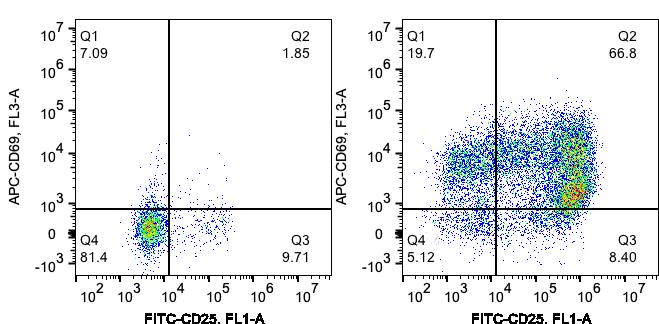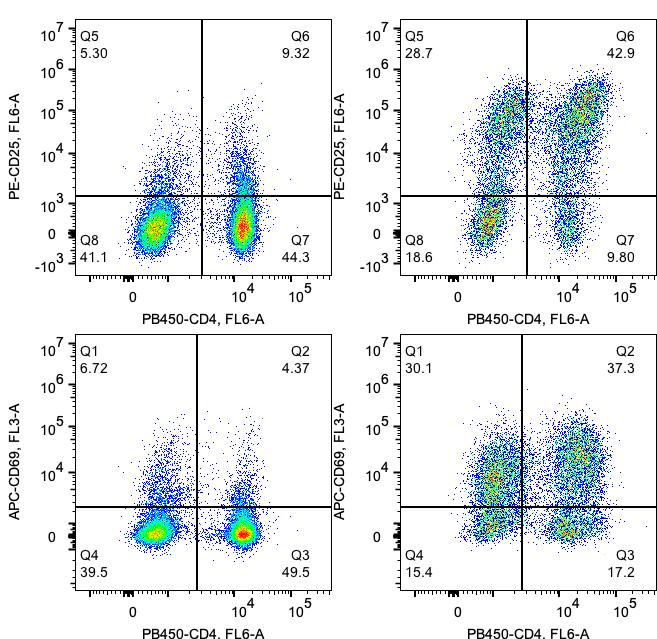Product Information
T lymphocytes are activated through MHC class II molecules on antigen-presenting cells (APC). After activation, T cells expand rapidly and secrete various cytokines. The Human CD3/CD28 T cell Activation Beads Kit is designed to activate and expand human T cells. This Kit contains Biotinylated anti-human CD3 and CD28 antibodies, as well as cell culture grade Streptavidin magnetic beads. After Streptavidin magnetic beads are loaded with biotinylated CD3/CD28, they mimic antigen presenting cells and can activate resting T lymphocytes from human PBMCs or purified T lymphocytes. After 2-3 days of activation, magnetic beads can easily be removed by magnet. Further T lymphocytes expansion will require human cytokines for in vitro culture.
Components
KMS310-10:
· MS310A-10: 100µL 0.1mg/mL functional grade Biotin-CD3 (clone: OKT3)
· MS310B-10: 100µL 0.2mg/mL functional grade Biotin-CD28 (clone: 28.2)
· MS310C-10: 500µL cell culture grade Streptavidin magnetic beads (2x108 beads/mL)
KMS310-100:
· MS310A-100: 1mL 0.1mg/mL functional grade Biotin-CD3 (clone: OKT3)
· MS310B-100: 1mL 0.2mg/mL functional grade Biotin-CD28 (clone: 28.2)
· MS310C-100: 5mL cell culture grade Streptavidin magnetic beads (2x108 beads/mL)
Storage
2-8°C
Storage buffer
Biotin antibody buffer: PBS and 0.5% HSA, pH7.4
Streptavidin bead buffer: PBS and 0.5% HSA, 2mM EDTA, pH7.4
Reactivity
Human
Beads diameter
2.7 µm
Recommend usage
10µL Biotin-CD3, 10µL Biotin-CD28 and 50µL Streptavidin magnetic beads; mix well and add 30µL buffer for incubation. 100µL antibody-loaded magnetic beads contains 1x107 magnetic particles and is used to activate 1x107 purified human T lymphocytes or human PBMCs in 2mL cell culture media (1:1 bead to cell ratio).
Cited in Article as
KMS310, Human CD3/CD28 T cell Activation Beads Kit, Proteintech, IL, USA
Documentation
| Datasheet |
|---|
| Human CD3/CD28 T cell Activation Beads Kit Datasheet |
Publications
| Application | Title |
|---|---|
Cell Death Discov LMNB2-mediated high PD-L1 transcription triggers the immune escape of hepatocellular carcinoma | |
Cell Mol Life Sci BCLAF1 binds SPOP to stabilize PD-L1 and promotes the development and immune escape of hepatocellular carcinoma |




